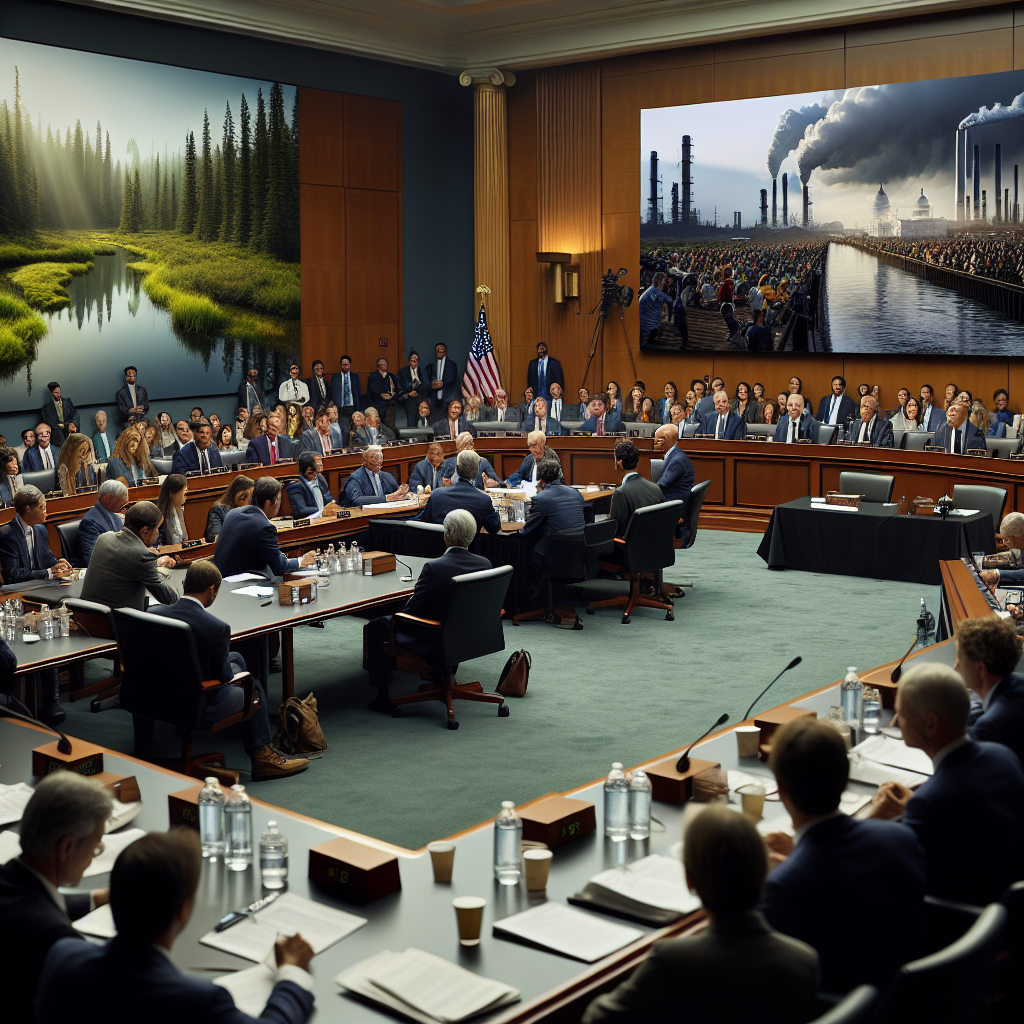
Environmental Challenges in Northeast Pennsylvania: A Collaborative Discussion
Gathering the Voices: Lawmakers and Industry Leaders
In a significant gathering at The Swiftwater in Monroe County, key stakeholders, including U.S. Rep. Rob Bresnahan and U.S. Environmental Protection Agency Administrator Lee Zeldin, convened to address pressing environmental issues impacting Northeast Pennsylvania (NEPA). The roundtable not only highlighted current challenges but also laid the groundwork for sustainable solutions.
Key Discussion Points
- Delaware River Basin and Stormwater Management: Conversations focused on the current state of the Delaware River Basin and the intricacies of managing stormwater runoff. Both are critical to the environmental health of NEPA, impacting water quality and regional ecology.
- Natural Gas Drilling Reforms: The debate intensified around natural gas extraction, specifically the existing regulations and their economic impact on the region.
Natural Gas: The Contention and the Promise
As the centerpiece of the discussion, natural gas drilling reform revealed a spectrum of opinions. John Augustine, President and CEO of Penn’s Northeast, emphasized the potential locked within the Marcellus Shale.
“We have the energy in the ground — it’s sitting there in the Marcellus — it’s just a matter of getting it out,” Augustine asserted. However, stringent regulations currently impede progress.
The Regulatory Landscape
Compounding the issue is the permanent ban on natural gas drilling by the Delaware River Basin Commission, impacting Wayne and Pike counties. This decision stems from ecological concerns but has economic repercussions on the region, as highlighted by local and federal representatives.
Economic Implications
Rep. Bresnahan shared an optimistic view on the immense economic benefits that natural gas extraction could bring.
“The ability to harvest natural gas right in our backyard would lead to almost a billion-dollar industry that would allow us to reinvest in our schools and public roads and recreation activities.”
Furthermore, Zeldin stressed the employment opportunities that could stem from enhanced pipeline development. The potential for job creation is substantial, offering a boon for local economies.
Stormwater Management: A Call for Fairness
State Rep. Brenda Pugh brought attention to inconsistencies in stormwater management fees, highlighting the uneven burdens placed on local residents.
“Our residents are bearing the burden of following this federal order,” Pugh pointed out, noting that some neighboring regions are not subject to similar fees.
This imbalance raises questions about fairness and the best methods to achieve regional environmental goals without disproportionately impacting certain communities financially.
Future-Forward Solutions
Administrator Zeldin emphasized the need to consider diverse factors in shaping future environmental policies, advocating for intelligent regulatory frameworks that align economic and ecological priorities.
“We want to be smart about any regulations coming out of the federal government,” Zeldin said. By integrating sound environmental policy with economic realities, sustainable growth is achievable.
Conclusion: A Path to Collaborative Progress
The roundtable at The Swiftwater underscored a critical juncture for NEPA. Navigating natural resource management, regulatory complexities, and economic ambitions requires a collaborative approach among all stakeholders.
The commitment to a balanced dialogue, as demonstrated by this discussion, offers a promising path forward in addressing the environmental challenges and opportunities of Northeast Pennsylvania.
Share this:
Engage with Us
Your thoughts and opinions are invaluable. Join the conversation and help shape the future of environmental policy in NEPA.
Source: https://www.thetimes-tribune.com/2025/03/02/lawmakers-area-stakeholders-discuss-environmental-issues-impacting-nepa/

